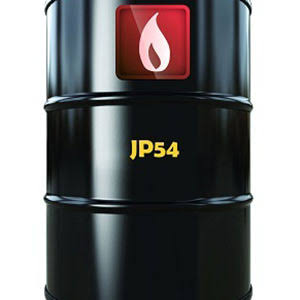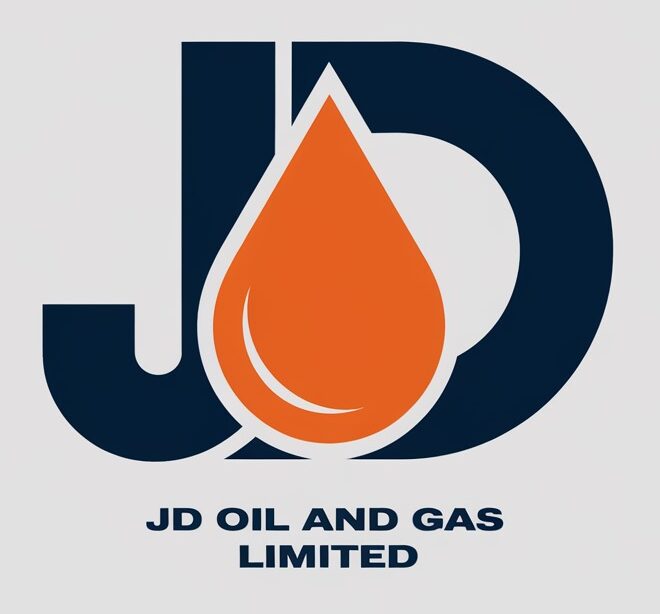JP54
JP54 – Aviation Kerosene Colonial Grade 54 Jet Fuel

What is JP54?
JP54 is a refined aviation fuel derived from crude oil during the fractional distillation process. Only about 15% of the crude oil processed in refineries is suitable for creating JP54, while the rest is used to produce other byproducts such as plastics and lubricants. Historically, JP54 was a standard fuel for aircraft until it was replaced by other grades like Jet A1 and AVGAS100LL (Aviation Gasoline 100 Low Lead), primarily due to advancements in fuel performance and safety.
Despite being largely replaced in commercial use, JP54 continues to be relevant for certain types of aircraft, as well as in military applications where its high energy density is valued. The fuel is known for its low sulfur content and is used globally under different national standards, including in countries such as Australia, Brazil, Canada, France, Japan, China, Spain, and Sweden.
Specifications of JP54
JP54, though no longer the primary fuel in commercial aviation, still adheres to rigorous standards to ensure its performance and safety. Some of its key characteristics include:
- Low sulfur content: Ideal for minimizing the environmental impact of sulfur emissions.
- Energy-dense: Provides a high calorific value, which makes it suitable for military and specialized aviation applications.
- Clean-burning: JP54 is designed to burn efficiently, minimizing residue and carbon buildup in engines.
Key Features of JP54
- Energy Efficiency: JP54 offers a high energy output, making it effective in powering aircraft over long distances. Its composition is engineered to support smooth and efficient combustion, making it ideal for high-performance aviation engines.
- Global Applicability: JP54 meets a variety of national standards, making it versatile for use in multiple regions around the world. This fuel type can be adapted for both military and commercial applications, depending on the operational requirements.
- Cold Weather Performance: Although fuels like Jet A1 have since taken precedence, JP54 historically performed well in cold climates. It was engineered to maintain performance across varying temperatures, making it suitable for different flight environments.
- Military and Civilian Use: JP54 has been used not only in commercial aviation but also in military applications where performance and reliability are crucial. It shares many characteristics with military fuels like JP-8, making it versatile for different aviation sectors.
JP54 vs. Other Jet Fuels
- JP54 vs. Jet A1: While Jet A1 is the standard fuel used in most commercial aviation today, JP54 was previously the go-to fuel for aircraft. Jet A1 has a more advanced formulation for modern engines, offering better cold-weather performance and safety standards.
- JP54 vs. Jet B: Jet B is a wide-cut fuel that includes both kerosene and naphtha fractions. Jet B is used in extreme cold conditions due to its superior low-temperature performance. While JP54 has some cold-weather adaptability, Jet B is preferred in Arctic and sub-Arctic regions.
- JP54 vs. JP-8: JP54 shares many qualities with military-grade JP-8, although JP-8 contains additional additives like corrosion inhibitors and anti-icing agents. These additives make JP-8 more suitable for harsh military environments, whereas JP54 is more focused on commercial and some military uses.
Production and Refining of JP54
Like other jet fuels, JP54 is produced through the fractional distillation of crude oil. Refineries isolate the kerosene fraction of crude oil during the refining process, which is then further refined and purified to create aviation-grade JP54. The fuel is subject to strict international standards that govern its composition, purity, and performance.
The refining process for JP54 ensures that the fuel meets the necessary requirements for aircraft safety, engine compatibility, and environmental considerations. Due to its low sulfur content and clean-burning properties, JP54 continues to be a reliable option for aviation use in certain regions and industries.
Quality Control and Safety
The safety and quality of JP54 fuel are paramount for any aviation application. As a high-performance fuel, JP54 undergoes rigorous testing and quality assurance procedures at every stage of production and distribution. This ensures that it meets all applicable aviation fuel standards for performance, safety, and environmental compliance.
- Purity Testing: To maintain the integrity of JP54, each batch is tested for impurities, such as water and sediment, that could affect engine performance.
- Fuel Sampling: Throughout the refining and delivery process, samples are taken regularly to ensure the fuel meets all performance and safety requirements.
- Safe Handling: JP54 requires careful handling and storage due to its flammability. Safety protocols are in place to prevent contamination and ensure that the fuel remains in peak condition for use in aircraft engines.
Global Standards for JP54
JP54 is recognized and used across various global markets, with compliance to different international and national aviation fuel standards. Some of the key standards JP54 adheres to include:
- DEF STAN 91-88 (UK): A British specification for aviation turbine fuels, ensuring JP54 is suitable for military and civilian applications in the UK.
- MIL-PRF-5624 (US): The U.S. military specification for jet fuels, including additives for corrosion inhibition and anti-icing properties.
- ASTM D1655 (US): The American Society for Testing and Materials (ASTM) standard for aviation turbine fuels, covering JP54 and other jet fuel grades.
Applications of JP54
Although Jet A and Jet A1 have largely replaced JP54 in commercial aviation, JP54 remains in use in certain aviation sectors. It is particularly valued for:
- Military Aviation: The high energy output and reliability of JP54 make it suitable for military aircraft, especially in regions where this fuel type is readily available.
- Specialized Civilian Aircraft: Some older civilian aircraft and certain international operations continue to use JP54 due to its specific performance characteristics.
- Fuel Blending: In some cases, JP54 is blended with other jet fuels to create custom fuel formulations that meet unique performance requirements.
Why Choose JP54?
JP54 remains a trusted jet fuel for specific aviation applications due to its high energy density, efficient combustion, and reliability. It is particularly useful for military operations or in regions where modern jet fuels are not as readily available. If you need a jet fuel that delivers consistent performance across a range of conditions, JP54 is a proven choice.
JP54 Supply and Delivery
Our company is proud to offer JP54 as part of our extensive range of aviation fuels. We understand that reliability and fuel quality are crucial to your aviation operations, which is why we ensure that every batch of JP54 meets the highest international standards. With our global network of suppliers and logistics capabilities, we can provide JP54 in bulk quantities to meet your specific needs.
Trust Us as Your JP54 Supplier
With over 15 years of experience in the aviation fuel industry, we are well-equipped to meet your JP54 fuel requirements. Our commitment to safety, quality, and on-time delivery ensures that you receive the fuel you need, when and where you need it. Contact us today to learn more about our JP54 supply services and how we can support your aviation operations.
Contact us now for more information or to get a customized quote for your JP54 fuel needs.

